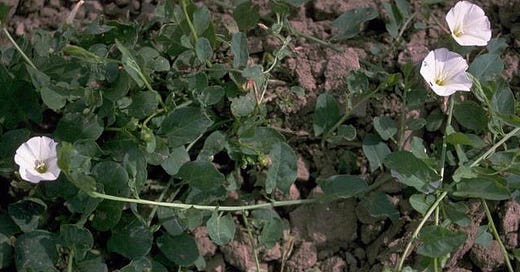How to eradicate weeds -- including field bindweed -- without chemicals
Plus: Choosing "the best" roses
Hi, guys!
Weeding season is back with a vengeance over here at Casa Damiano, and I can’t say I’m happy about it.
It’s much worse than it should be because in the fall, after painstakingly and repeatedly raking all my fallen leaves into my beds and borders to serve as mulch (and provide habitat for overwintering pollinators), my landscaper, who only cuts t…
Keep reading with a 7-day free trial
Subscribe to The Weekly Dirt with Jessica Damiano to keep reading this post and get 7 days of free access to the full post archives.


